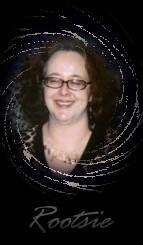 |
|||||
 |
|||||
Martin Luther King in the American Psyche |
|||||
|
By Rootsie January 19, 2004 Every school in the United States has its obligatory Martin Luther King Day 'celebration.' It is interesting to ask students what they know about Dr. King: "He got freedom for black people." "He believed the races should get together." "He believed in love." "He got assassinated by a racist guy." "He had a dream." Once the little ones are finished decorating their papers with butterflies, rainbows, and flowers, perhaps it's time to ask, as I did: "Did you know he was beaten and arrested many times?" "No." "Did you know his house was firebombed?" "No." "Did you know he knew he was going to be killed for the work he did?" "No." "Did you know he spoke out against the Vietnam war, and was assassinated shortly after?" "No." "Well what kind of man do these things say he was?" "Brave." "And who did all these things to him?" "White people." "From where?" "The United States." "Are those people gone now?" "Well they don't do those things anymore." "Well they killed him, didn't they? Don't you think they would feel pretty good about that?" "Well yes." "So are they gone now? Where did they go?" At this point there would be many places to take such a conversation, from atrocities like Richard Byrd or the MOVE massacre, to government complicity in his harassment and assassination, to the lived reality of racism today in the United States. But Dr. King has been colonized, co-opted as some sort of poster child for America's illusion of racial harmony. I remember how white people in the North feared Malcolm X and loved Dr. King; they ignored his militancy and embraced him as a 'good black.' He knew he would be silenced, and by whom. He knew that the moment Malcolm X spoke out on the international stage, he was quickly murdered. And yet Dr. King persisted. But we don't want to talk about revolutionary spirit. We want our children indoctrinated into the idea that 'democratic processes' work, that if someone has a problem they must simply speak out and the government will write a new law to help them out. The assassination of Dr. King is viewed as anomalous to his work, and not as the inevitable result of it. In the North especially, people could shake their heads and cluck sadly about those 'Southern crackers.' 'Freedom fighter." "Revolutionary." "Radical." None of these are used to describe Dr. King, and they would not be appropriate to describe the whitewashed version of him that has been constructed over the past 35 years. On this day, Americans are not encouraged to take a cool look at their history, and they are certainly not invited to reflect on what has become of Dr. King's 'dream.' Their president appointed a racist judge to a Federal bench while a filibustering Congress was out of town, and last year to celebrate he announced a lawsuit against the University of Michigan's affirmative action policies. They are encouraged to dreamily dream a self-satisfied and self-serving dream. Howard Dean a few weeks ago insinuated in a speech that there are no racial issues in America, and that suits us just fine. We can listen to the 'I Have a Dream' speech and get teary-eyed. We can celebrate Dr. King's dream, but in no way are we willing to face his reality. Copyright © 2003 rootsie.com |
|||||




